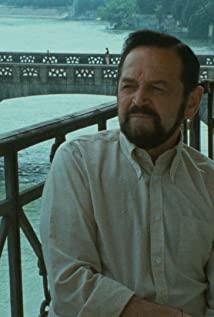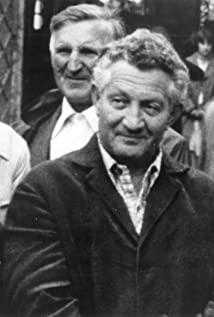"There is no document that mentions'killing the Jews', only'final solution' Project'. This name means that from now on there will be something that cannot be directly expressed."
-What did Lanzman find? It is a black hole. When the term "final solution" was written on paper, there was a violent collapse of the real space and the spiritual history at the same time, and this collapse involved everything involved in the surroundings. And anything we can see and collect today is nothing but fragments on the edge of this black hole. The same goes for Lanzmann's image. He can only show us this area, but cannot touch on its essence, let alone reach its core.
I even suspect that the core is not evil. The purpose of evil has never been destruction, but the effect that destruction can achieve. Or there is evil without cause, but that doesn't need to be sustained for so long to vent. In the eyes of a cruel or ugly storm, there is also a kind of blankness. This gap is something human beings have not yet recognized.
-Railways and rivers pass through concentration camps. The former transported the victims, and the latter transported their ashes.
This is a conspiracy in which the natural and artificial worlds are linked together. Forests and wastelands have become the shelters and grounds of concentration camps, and the principles governing their operation are the production capacity principles of industrial civilization. Before that, we had a superficial understanding of Nazi civilization—if it could be called a civilization. This civilization with the purpose of destruction may have created many unprecedented ways, including the design of the use of such resources. They may be the best combination of classical and modern concepts.
When a certain interviewee mentioned that "some company undertook the construction of Triblinka concentration camp", the tone was no different from talking about a real estate business. In fact, for those construction companies that have undertaken concentration camp projects, and those automobile companies that have developed poisonous cars, this is indeed just a business. In the field of business, once the order model is activated, it is difficult to imagine any room left for conscience and ethics. Therefore, it is absolutely unreliable to expect business culture to lead the moral standards of mankind.
Moreover, it is unrealistic to ask them whether they know or not. It is important to know that an order is a concept in a context, and the content written in this conceptual system is just a product. Other roles and properties have nothing to do with this context. The existence of arms dealers proves this point. The nature of designing nuclear warheads and designing gas chambers is not fundamentally different.
——Jews and SSs interviewed, the former has a clear face, while the latter is fuzzy. Clarity is of course a kind of calmness, and the right to speak of the victims is inviolable and absolute. However, this is definitely the remnant after suffering. Most interviewees have vigilant and numb expressions on their faces. They are avoiding recalling the most painful moments, avoiding relived the most terrifying inner experiences. They are trying their best to find the feelings that were lost in the local area at that time. Because of excessive panic and various extreme stimuli, people can no longer experience and perceive anything. These retrospectives can therefore only be used as statements of facts, and their performance itself implies the degree of horror of the facts.
For the same reason, the SS, I can't see their faces, but I believe that at the time, they also lost the ability to feel. So that they couldn't understand their role in it afterwards. The facts convicted them, they are indeed cruel perpetrators, and there is no room for sophistry. But they no longer have any emotional memory of their actions. The disgusting environment, the dying people around and the decomposing corpses, and the pressure of the remaining human conscience are also an inhuman transformation and stimulation for them. They still have to bear the blame for all that, and it should be. But from the perspective of being invaded by blanks, they are no different from their victims. This catastrophe took away the lives of both parties at the same time, and both of them were destroyed from the senses and reason. The faces of those sinners have also become remnants of the aftermath.
In contrast, the state of the head of the Nazi Railway Bureau is relatively normal: he can excuse him, and the facts also give him the possibility of excuse. He is not on the scene. He is just a peripheral role like "Aikman of Jerusalem". The reaction of the former Polish national intelligence agent is also normal: he can cry, for the miserable sight he sees, or the unbearable pain of a shaken conscience. Because they are not at the center of the disaster, they have maintained a relatively complete human nature, and can use reason to get rid of suspicion, and they can also feel with emotion. They are just people affected by the catastrophe. The shock wave knocked them down and left a mark on them. But they still have the ability to reject those memories and prevent them from being dominant in their lives. This is their luck, but the visitor's misfortune: in the face of such a person, it is difficult to dig out the truth. They can also resist the truth.
——The most real people are those around the concentration camps. Their status is the most complicated: they see it, but they can't say it. They are witnesses, but they are also the most difficult witnesses. Millions of strangers were killed by their side, nothing to do with them, but put them in a morally suspicious situation. From then on, they may indeed be powerless. It's not from an objective condition. Because of this situation, it is impossible to measure people's inner state and specific conditions in a clear and real way. Most of them because of their fear and self-preservation instinct, they naturally act as bystanders. They know the legitimacy of this status, so when interviewed, they didn't feel much fear and shame. But Lanzman's problem was persecuting them, and this persecution prompted them to express some simple, though not glamorous, feelings. They must declare: killing is not what they want, and they are very disgusted with it. On the other hand, they are trying their best to understand the Jewish tragedy: they are too rich, their beliefs are different, and they are responsible for the death of Jesus. . . They strive to make visitors understand: they are just spectators, not parties. They do not want and should not be counted among the participants in history.
The scene of the Jewish survivor, the "singing boy" standing among a group of Polish villagers is most interesting. The villagers interviewed were obviously addicted to their own expressions, and did not pay attention to and cared about the presence of survivors. It is in this segment that a man tells the story of the "Bible", believing that what happened to the Jews was arranged by God. He obviously didn't care about the expressions of the survivors at all. The smile on the survivor's face was originally stiff, but at this time it gradually disappeared and turned into contemplation. But that is a kind of tolerant meditation, because he said in the opening movie: "You people who have not seen it with your own eyes will never understand."
-Efficiency, assembly line, factory. Is it just embarrassment that these concepts of industrial civilization appear here? Is Auschwitz’s operating mechanism just a cruel and extreme case? Except for the fact that technology itself is used for destruction, which has long been predicted, the instrumental rationality behind it has not been clearly sorted out. The root cause of mechanized destruction is not that technology is in the hands of lunatics, but the inevitable result of the operation of a whole set of concepts and systems generated by mankind in technological civilization. People can be regarded as cost calculations, and they can also be treated as raw materials. People can be deployed according to production needs, or they can be processed as production objects. The purpose of this institutional environment is efficiency and speed. Efficiency fundamentalism believes that as long as the problem can be solved most effectively within a unit of time, the nature of the method and the content of the means are not hesitating. There is absolutely no place for people in this doctrine. Man has become a means of efficiency, just as nature has become a means of efficiency. Throwing people into a killing machine to process them into ashes in two hours, and sending workers who have lost their labor home penniless, are nothing more than the implementation of the principle of indifference in efficiency. People have been immersed in this principle for a long time, and it is not impossible that they become numb and frantic. In this sense, catastrophe is inevitable.
I hope that the rough guys in Nuremberg, who were originally chicken farm farmers and trade union thugs, were not inspired by "Modern Times"? But the members of the National Socialist Workers Party are most familiar with factory chimneys and roaring assembly lines.
At that time, perhaps the world should lose associations, all associations.
View more about Shoah reviews











